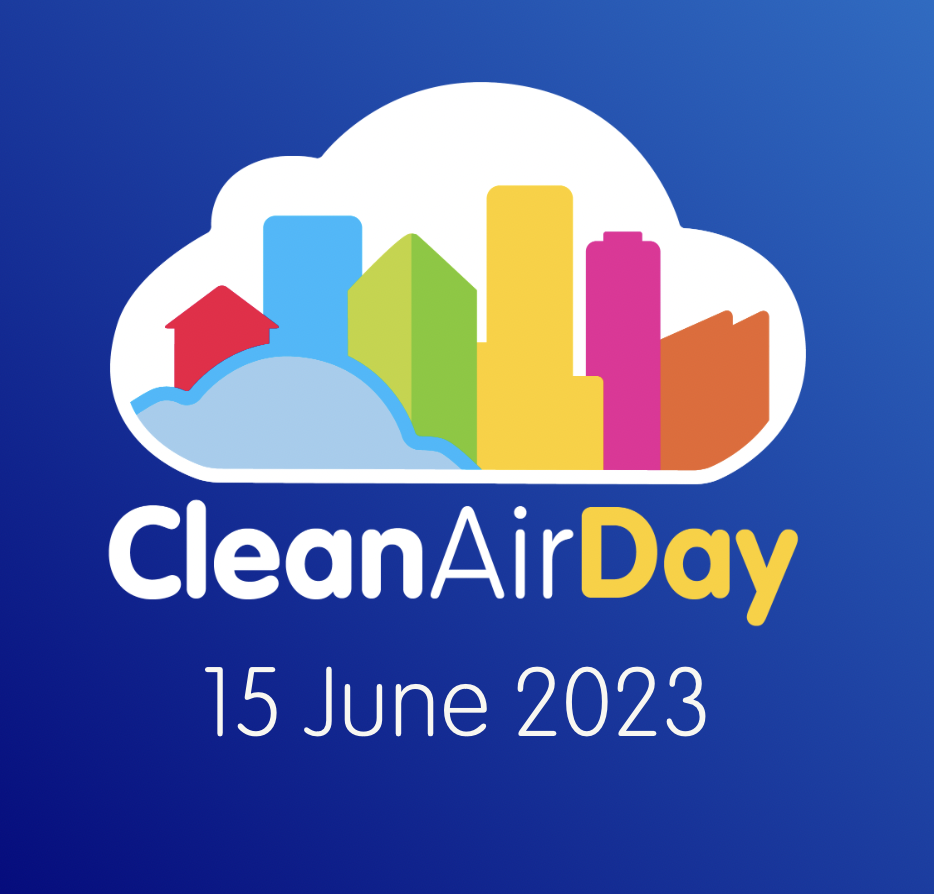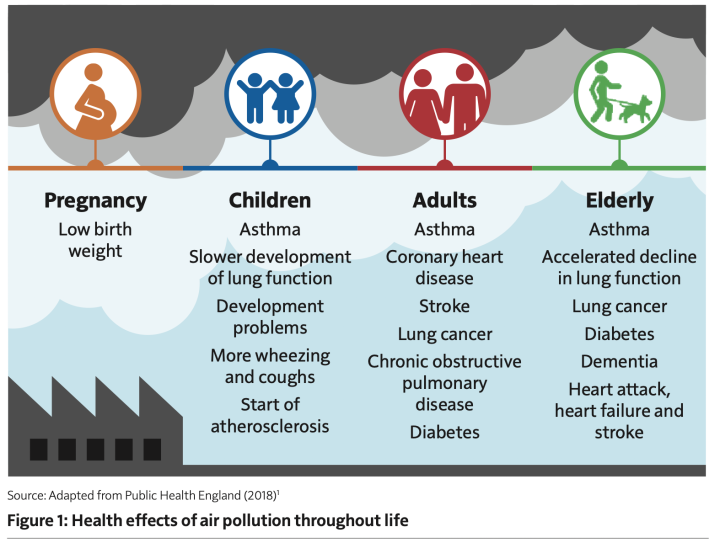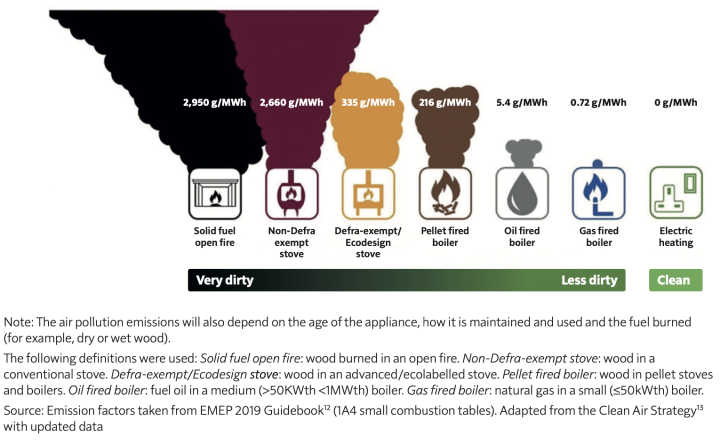
Clean Air Day 2023: How do we reduce the environmental impact of respiratory care?
As one of the greatest public sector carbon emitters in the world, the healthcare sector will need to make significant reductions in order to meet its net zero carbon ambitions.
Every year, air pollution causes up to 36,000 deaths in the UK. The World Health Organisation and the UK Government recognise that air pollution is the largest environmental health risk we face today. - Clean Air Day campaign, Global Action Plan
What is Clean Air Day?
Clean Air Day is the UK's largest air pollution campaign. Organised by Global Action Plan, it serves as a catalyst for the Clean Air movement by organising and empowering individuals and groups to take action against air pollution and make sure their voices are heard. This year’s theme is « Clean up our air to look after your mind » highlighting the growing evidence that air pollution can impact mental and brain health.
Air pollution and health: what are the links?
Air pollution presents one of the biggest threats to our health. Tiny particles of air pollution are breathed into the lungs, cross into the blood stream and travel to every organ in the body where they cause damage. Air pollution causes and worsens lung diseases like asthma, but also increases the risk of many diseases such as high blood pressure, stroke and lung cancer.
Research also shows that air pollution has an impact on mental health and can be linked with conditions such as schizophrenia, depression, anxiety, and mood disorders. Additionally, it causes a quicker deterioration in cognitive ability as well as a higher chance of dementia.
Children are more vulnerable to the effects of air pollution. Mitigate children's exposure to traffic pollution in and around schools should be a priority as findings shows that 60% of the pollution that children breath in each day is during the school run.

Source: Health effects of air pollution throughout life, gov.uk
The effects of air pollution, the greenhouse gases in MDI inhalers, and the single-use plastic waste from procedures and PPE provide substantial obstacles for respiratory care practitioners to overcome. However, the healthcare community has a wealth of knowledge and expertise to offer significant and sustainable solutions.
What are the solutions?
The NHS Net Zero Plan mentions reducing carbon footprint emissions. Reducing patient travel, encouraging staff to change modes of transport, emphasising supply chain innovation and better resource management, and adding clean air specific programmes to address air pollution are a few of the things discussed.
In the last few months, health professionals around the country took part in a project to measure local air pollution in comparison to the WHO air quality guidelines, aiming to raise awareness of the health impacts of air pollution and encourage the government to take more action to reduce air pollution quickly. They recorded a video which can be viewed here.
Lung illness currently affects more than 12 million individuals in the UK, and more than 60 million inhalers are prescribed each year as the main treatment choice. Data from surveys of patients like the 2022 Asthma UK patient survey and the National Review of Asthma Deaths demonstrate that inhalers are not used to their full potential, resulting in subpar outcomes and preventable deaths. Therefore, it is essential to assist people with asthma, COPD, or other respiratory conditions in using their inhalers properly. As a result, patients' lung conditions can be better managed, leading to less symptoms, reduced risk of asthma attacks or lung disease flare-ups, and increased likelihood that they will remain healthy and avoid hospital trips.
The Centre for Sustainable Healthcare has led research on why the UK continues to use inhalers with a much higher carbon footprint than other European countries. Our Sustainable Respiratory Care group identified opportunities to lower the carbon footprint of healthcare ranging from lower carbon inhalers to better integration of primary, secondary and emergency care. An example can be seen in this Sustainability in Quality Improvement case study, Turning Blue Inhalers Green - High Quality Low Carbon Asthma Care.
More resources on inhaler best practices:
- The Climate Conscious Inhaler Practices in Inpatient Care playbook provides background information and resources to guide more environmentally sustainable inhaler practices in inpatient settings.
- The Climate Conscious Inhaler Prescribing in Outpatient Care playbook is a new and improved implementation guide providing background information and resources towards more environmentally sustainable inhaler prescribing in primary care settings.
We are adamant that the inclusion of environmental protection as a key driver alongside cost and quality of care can encourage low carbon innovation and ultimately produce a service which is preventative, personalised and efficient.
How to take action?
Reduce your contribution to and risk from air pollution on your day-to-day life:
- Drive less – walking or cycling is better for your health and there is evidence to suggest that you are less exposed to air pollution compared to inside a vehicle
- Encourage car free areas outside schools
- When driving, if you stop your car, switch the engine off. Do not idle your motor
- Avoid burning wood and solid fuel in your home
In urban areas, road traffic and household heating, particularly open fires and wood burning stoves, are significant sources of air pollution. And, if electric vehicles produce less air pollution than petrol or diesel vehicles, they are not completely pollution free.

Relative PN2.5 emissions from domestic heating methods, CMO report on air pollution.
Source: Health effects of air pollution throughout life, gov.uk
If you are interested in reducing the environmental impact of respiratory care as healthcare professionals, here are few steps you can take:
- Browse through the Clean Air Day website, it offers a range of resources for all - including for health professionals
- Watch this introduction video to a newly launched ICS framework on improving air pollution in ICSs
- Set goals and self-assess your progress on tackling air pollution using the Clean Air Hospital Framework
- Book a spot on our Sustainable Respiratory Care course demonstrating how the health system is susceptible to climate change but also plays a role in it. It also looks at the specific role that inhalers play in carbon emissions and other environmental damages, and considers how to create a more sustainable approach to respiratory healthcare without sacrificing or lowering quality of care
Next workshop session: Friday 26 January 2024, 9.00-13.00 GMT. Book here - Join our Sustainable Respiratory Care network, a place for clinicians to come together and share ideas and resources about sustainable healthcare
- Show up at our Respiratory Care Sustainability Network 'sharing hour' where we plan to discuss all this and more
Next session: Wednesday 28 June 2023, 15:00-16:00 BST. Register here

